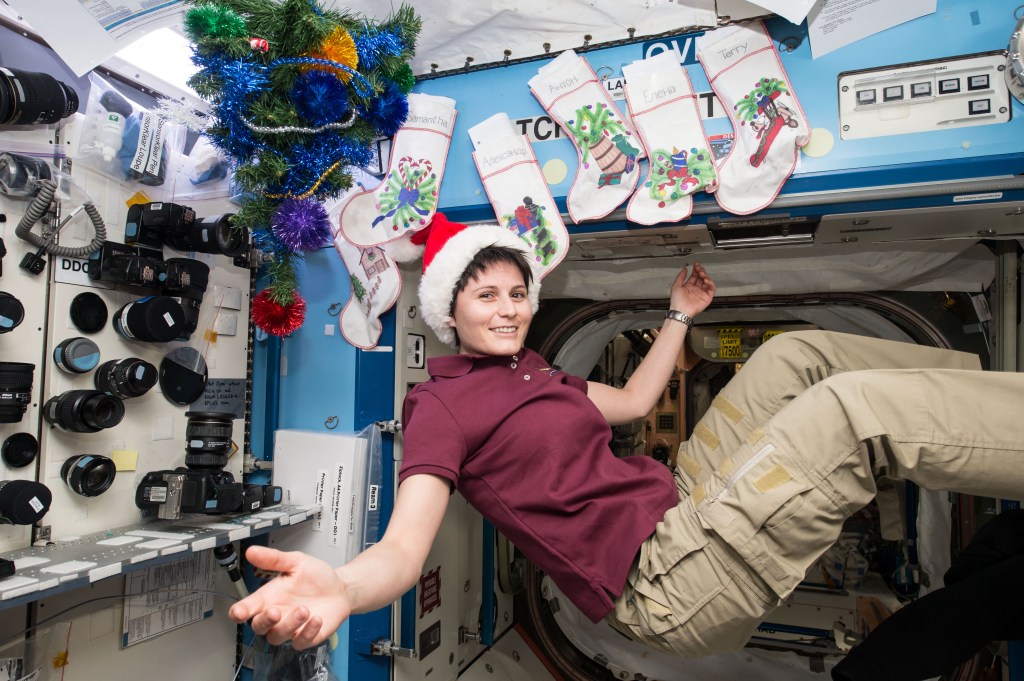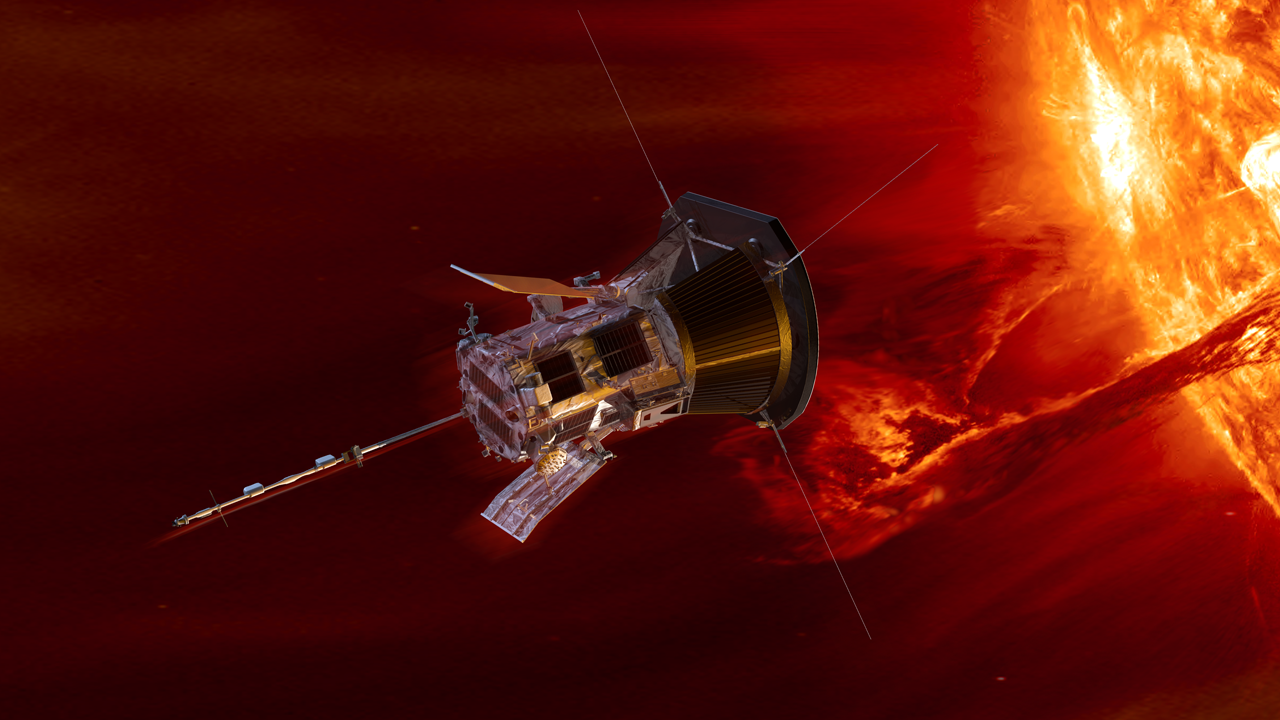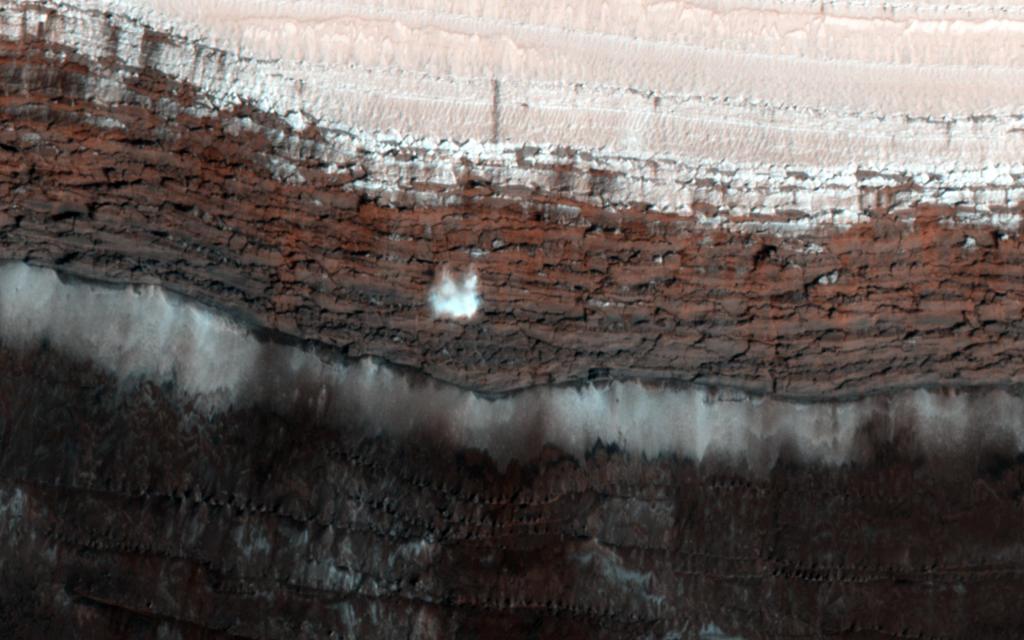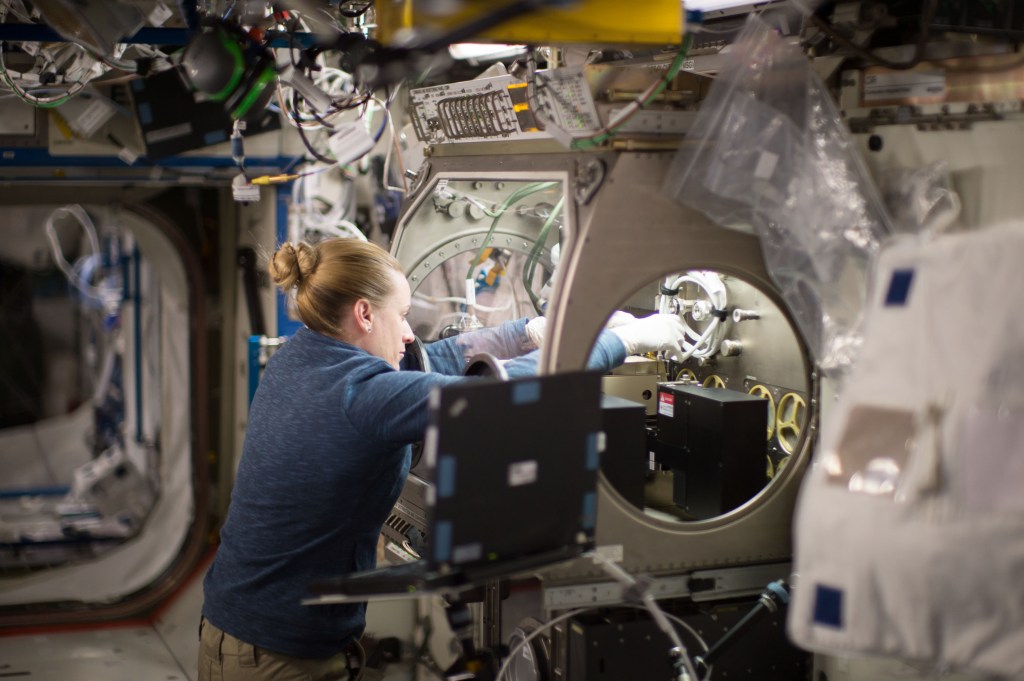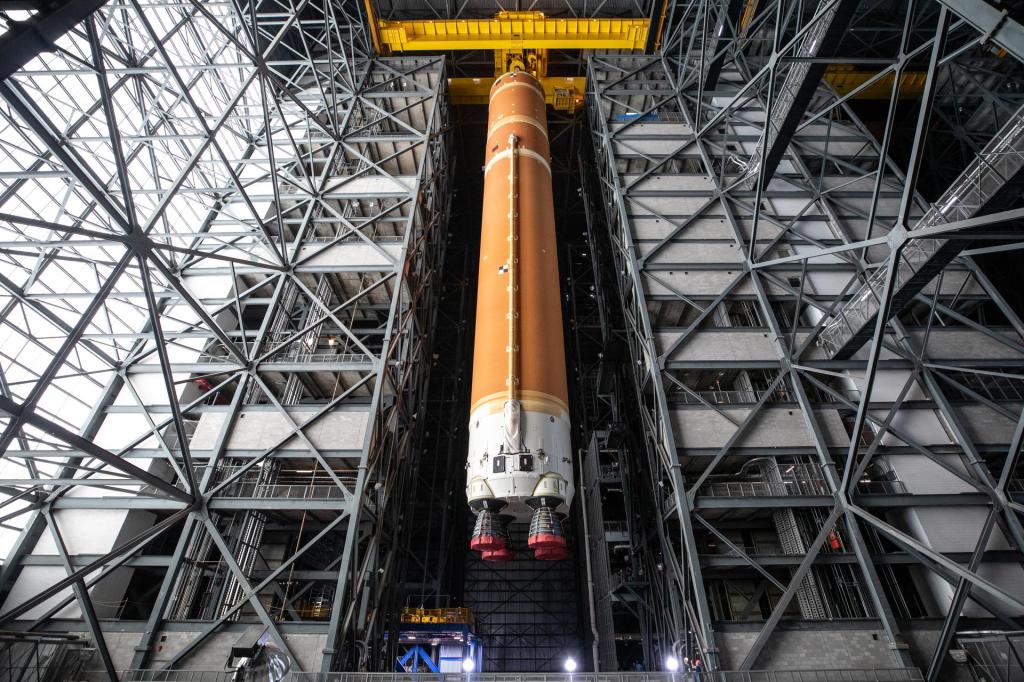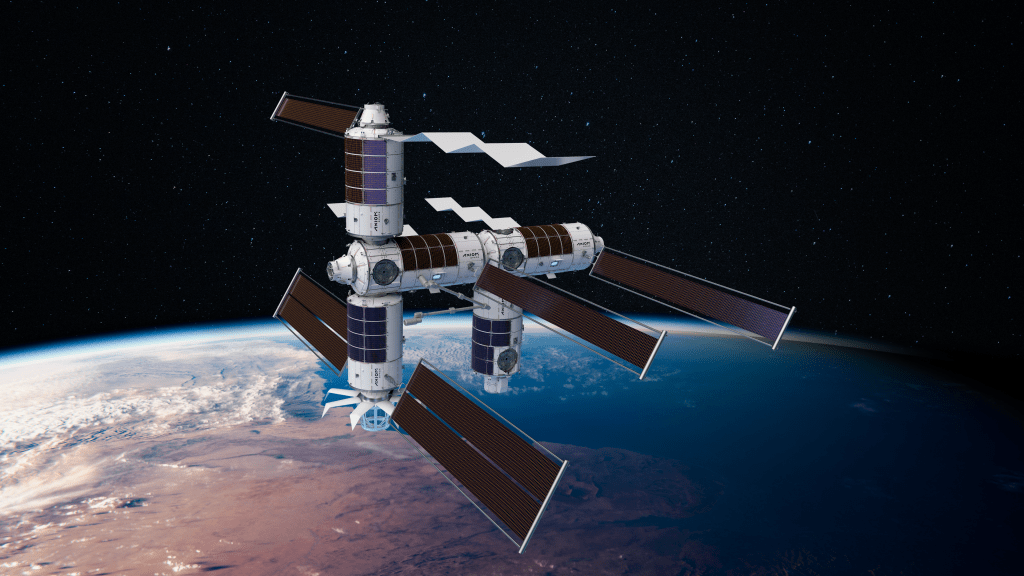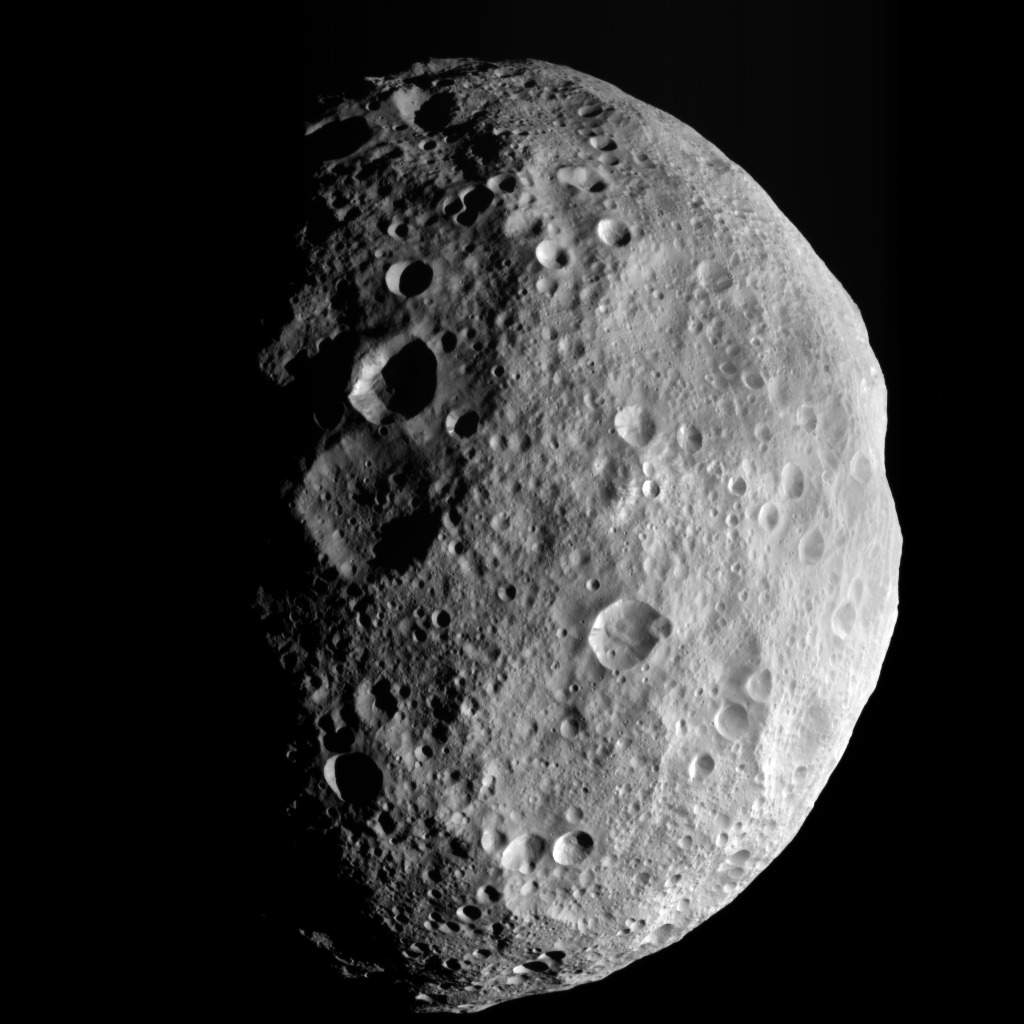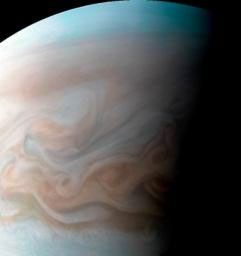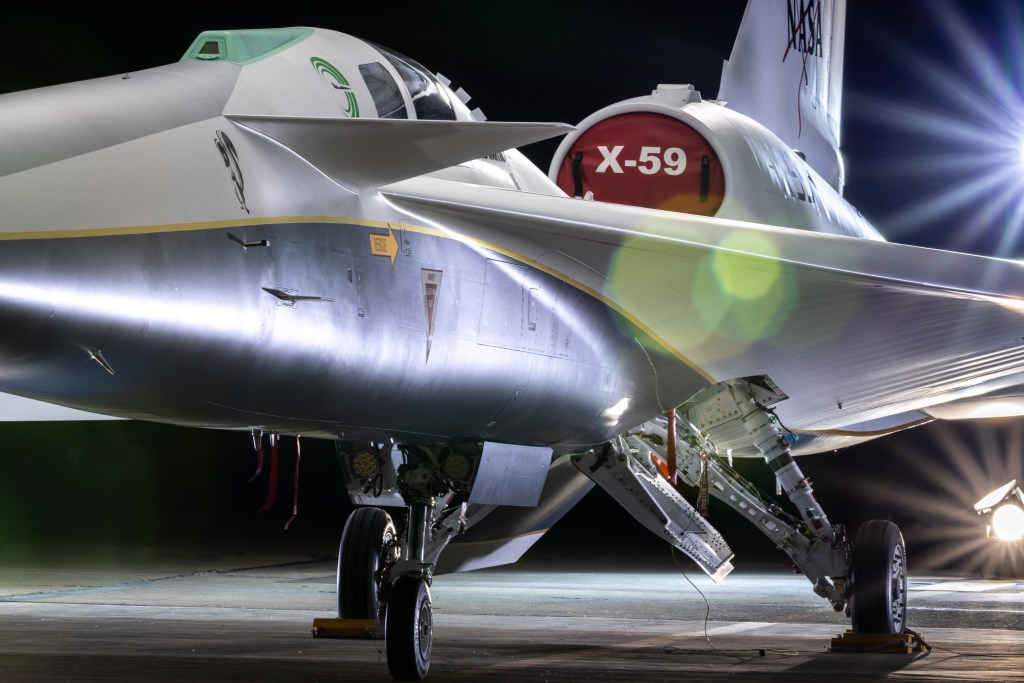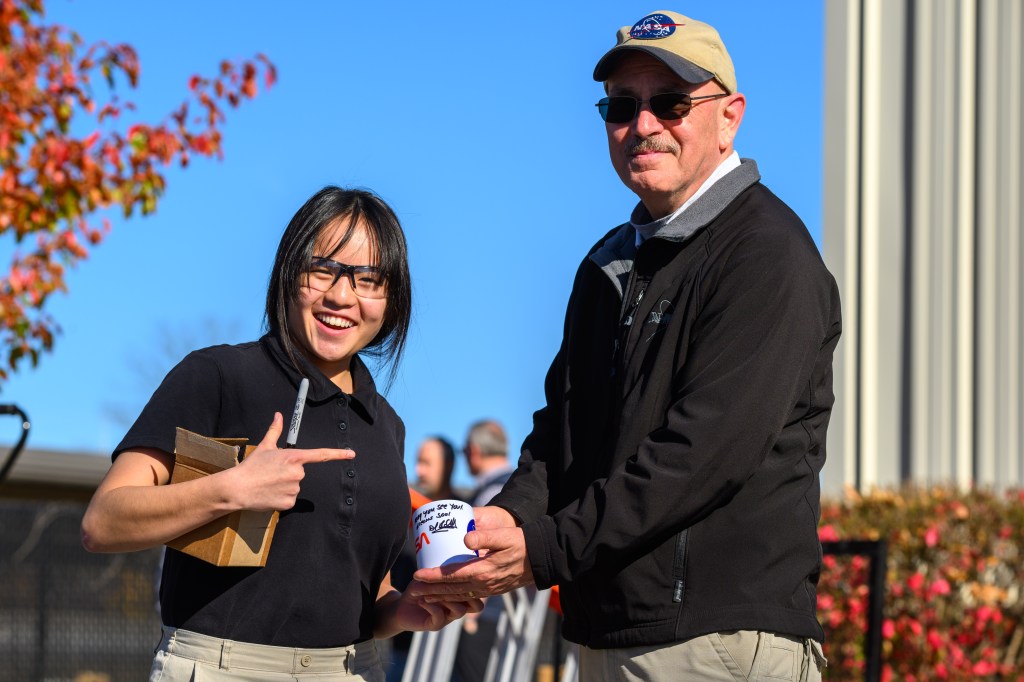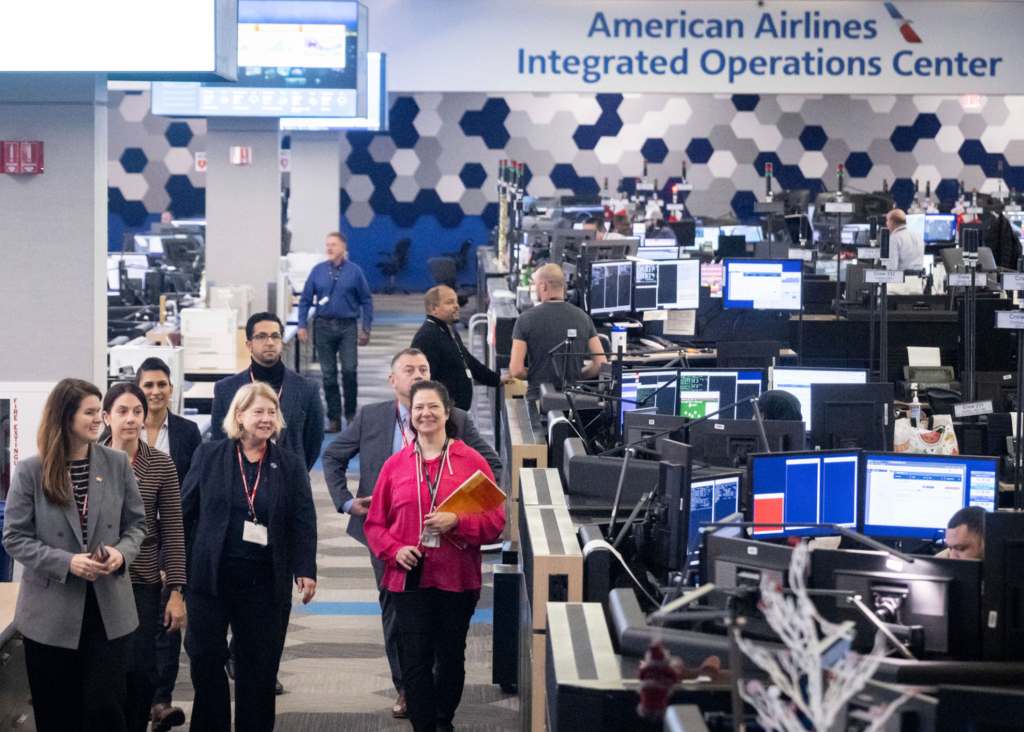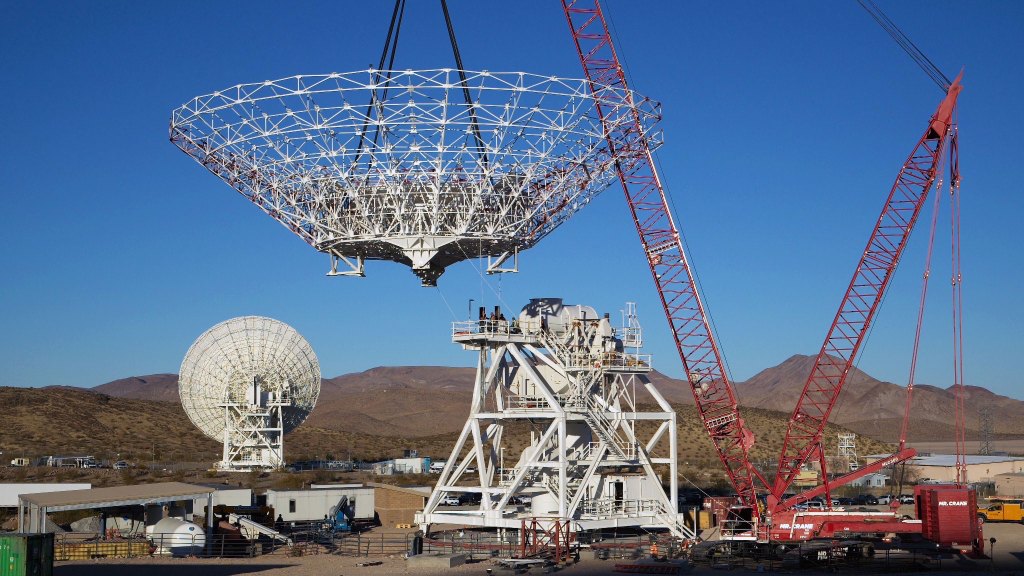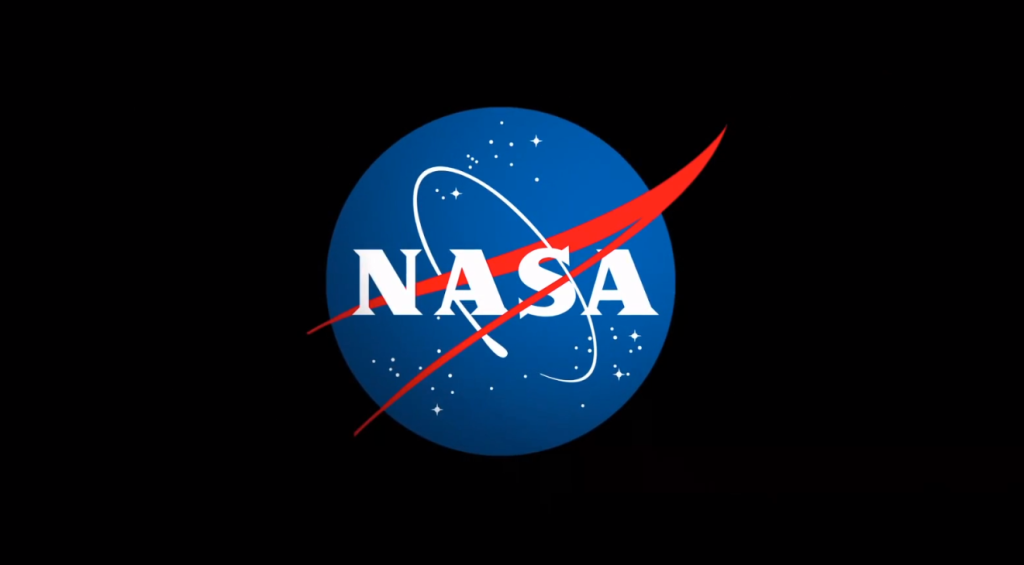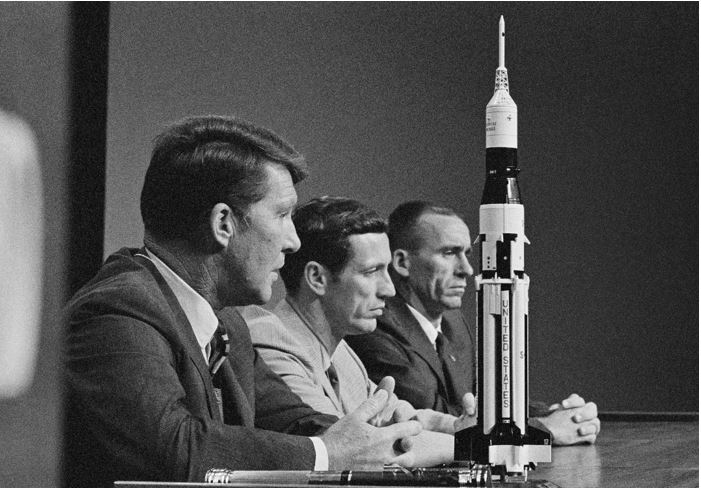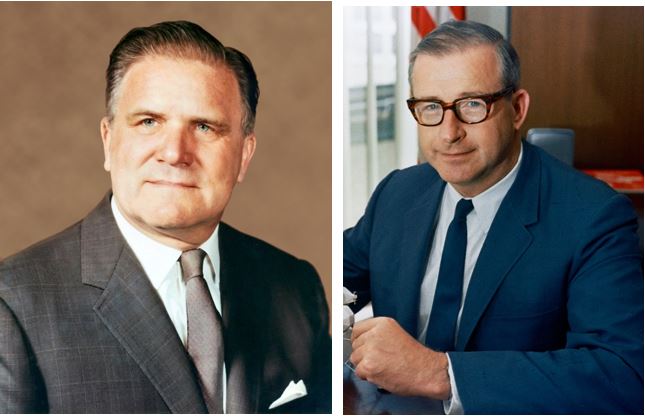With three weeks remaining in the preparations for the October 11, 1968, launch of Apollo 7 and its crew – Walter M. Schirra, R. Walter Cunningham, and Donn F. Eisele – NASA completed a major milestone. The Countdown Demonstration Test (CDDT), a complete rehearsal of the actual countdown, took place between September 11 and 17. The astronauts participated in the final part of the exercise in the spacecraft wearing pressure suits, concluding with a simulated liftoff. Controllers monitored the simulated countdown in the firing room of Launch Complex 34, in the reinforced concrete Blockhouse about 320 meters from the launch pad.
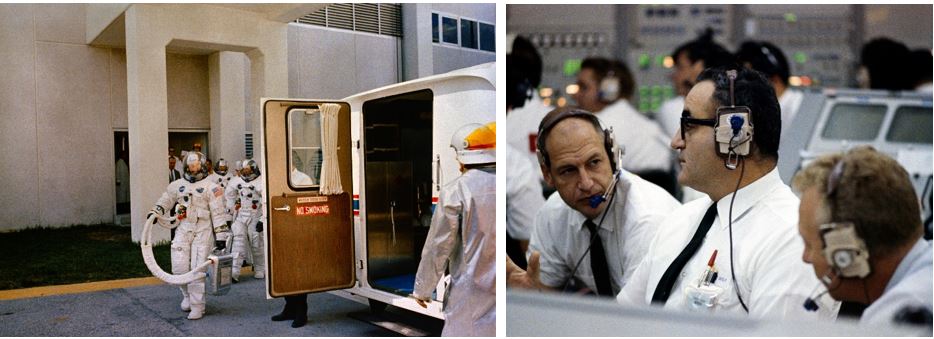
In the blockhouse at Launch Complex 34, (left to right) Apollo Spacecraft Program Office Manager George Low, KSC Launch Operations Director Rocco Petrone and Chief of Test Operations Office Paul Donnelly monitor the progress of the CDDT (right).
The Apollo 7 crew held a preflight press conference at the Manned Spacecraft Center (MSC), now the Johnson Space Center, in Houston, on September 20. In front of reporters gathered in the MSC auditorium, the crew narrated a film about their training and answered questions about their upcoming flight, the first crewed Apollo mission designed to thoroughly test the new spacecraft. “We are just about ready to fly this mission,” said Schirra to describe their readiness for the mission, adding “I think we’ve enjoyed working together.” He also announced that Apollo 7 would be his last flight, having previously flown a Mercury and a Gemini mission, but that he would stay on with NASA as long as he was needed, probably through the Moon landing.
In another significant development, NASA Administrator James E. Webb unexpectedly announced that he would be resigning effective October 7, his 62nd birthday. Thomas O. Paine, Deputy Administrator since March 1968, became Acting Administrator. Webb served as NASA’s second administrator starting in 1961 and led the Agency through its formative years, skillfully guiding it through the Mercury and Gemini programs and helping it recover from the January 1967 Apollo fire that killed three astronauts. His efforts were instrumental in helping NASA achieve President John F. Kennedy’s goal of landing a man on the Moon and returning him safely to Earth before the end of the decade.

